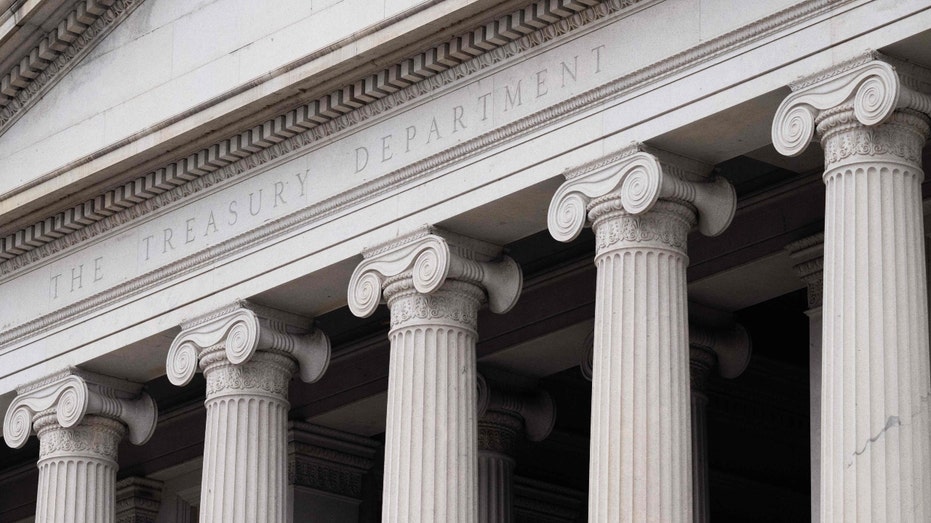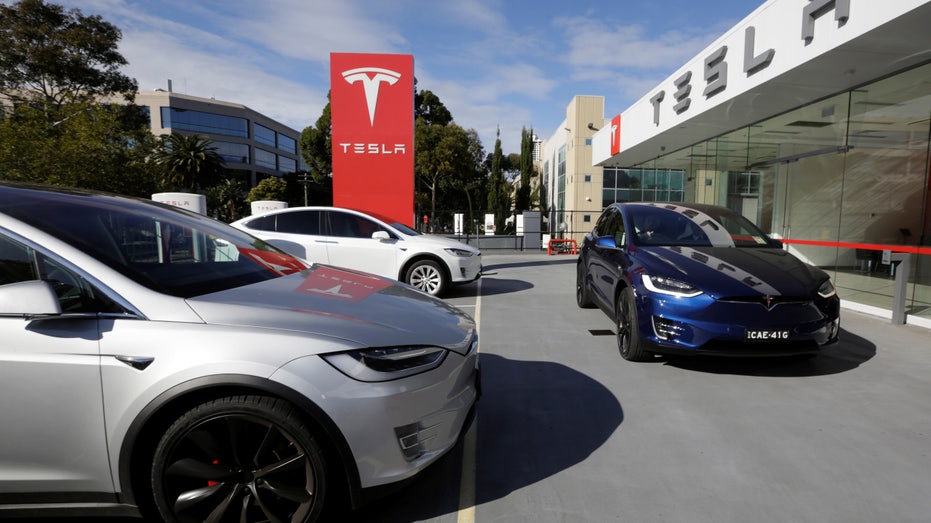EV tax credit eligibility to be reduced in the coming month
The proposed rules involve critical mineral and battery component sourcing
Biden touts tax credits for Canadian-assembled electric vehicles
President Biden lauded the Inflation Reduction Act for offering U.S. tax credits on Canadian-assembled electric vehicles during a speech at the Canadian Parliament in Ottawa.
Eligibility for key tax credits could be reduced or lost altogether for a number of electric vehicles in the coming month.
When April 18 arrives, EVs will be subject to new rules that impose critical mineral and battery component sourcing requirements that could cause their eligibility for a clean vehicle tax credit to be lost. The Department of the Treasury unveiled the notice of proposed rulemaking on the matter Friday.
The proposed new guidance, the Treasury Department said, is meant to "lower costs for consumers, build a resilient industrial base and spur manufacturing in the U.S." as well as "strengthen supply chains with like-minded partners that are vital for energy security."

The U.S. Treasury Department building in Washington, D.C. (SAUL LOEB/AFP via Getty Images / Getty Images)
The starting percentage of value of battery components required to be made or assembled in North America will come in at 50% for 2023, reaching 100% in 2029 after having been upped each year in the interim, the proposed rule said.
FORD INVESTING IN $4.5B INDONESIAN NICKEL PLANT TO SUPPLY KENTUCKY-BUILT BATTERIES
Under the proposed guidance on critical minerals, 40% of the value of them in the battery "must be extracted or processed in the United States or a country with which the United States has a free trade agreement, or be recycled in North America," for this year, according to the Treasury Department. The required percentage will see incremental increases of 10% each year until it becomes 80% in 2027.
If a newly-purchased EV meets the proposed mineral and battery component requirements, it can get the $7,500 credit, according to the Treasury Department. If it only meets one of them, the EV will have it for the $3,750 one.

A Tesla Model X vehicle is taken for a test drive at a Tesla electric car dealership in Sydney, Australia, May 31, 2017. (Reuters/Jason Reed / Reuters Photos)
During a call ahead of the announcement Friday, a Biden administration official told reporters that it was unclear how many vehicles would actually be eligible for the tax credit under its proposed rules, Fox News Digital reported.
Which EVs will have eligibility is "not a question that can be answered today," Alliance for Automotive Innovation CEO John Bozzella wrote in a Friday blog post, noting the manufacturers give the information directly to the Internal Revenue Service.
"This latest turn will further reduce the number of eligible EVs," he said. "Fewer vehicles (and fewer customers) will qualify for the full $7,500 credit in the near term."
Bozzella also suggested that for the $7,500 credit under the new rules, "few of the 91 models currently for sale" would be eligible. Some, he said, will "certainly qualify for a partial credit."
A notice visible Friday on the top of Tesla’s website said the $7,500 tax credit "is anticipated to be reduced for Model 3" starting April 18.
DEMOCRAT MANCHIN THREATENS TO SUE BIDEN ADMINISTRATION OVER ELECTRICAL VEHICLE TAX CREDITS: REPORT
Democratic West Virginia Sen. Joe Manchin slammed the Treasury Department’s guidance in a statement, arguing that it "completely ignores" the Inflation Reduction Act’s intent.
There is also a provision banning EVs from having battery components produced by a "foreign entity of concern" come 2024, and critical minerals from such entities as of 2025, if they want the tax credit eligibility, according to the Treasury Department. The agency said it "will issue subsequent guidance."

A line of electric cars and newly installed charging stations sit in front of the Portland General Electric headquarters building on July 28, 2015, in Portland, Ore. (AP Photo/Don Ryan, File) ( (AP Photo/Don Ryan, File) / AP Newsroom)
"It is horrific that the Administration continues to ignore the purpose of the law, which is to bring manufacturing back to America and ensure we have reliable and secure supply chains," he said. "American tax dollars should not be used to support manufacturing jobs overseas. It is a pathetic excuse to spend more tax dollars as quickly as possible and further cedes control to the Chinese Communist Party in the process."
FORD CEO REVEALS EV REALITY: AMERICA ‘CANNOT CONTINUE TO IMPORT’ BATTERIES, EARTH MINERALS
The Inflation Reduction Act – the legislation from which the rules and others pertaining to things like North American final assembly stem – became law over seven months ago with President Joe Biden’s signature.
On a U.S. government-run website, a list of vehicles that currently have eligibility for a credit is publicly available. It will update the information when the new proposed rules, which are subject to a public comment period, go into effect.
Fox News Digital’s Thomas Catenacci contributed to this report.




















